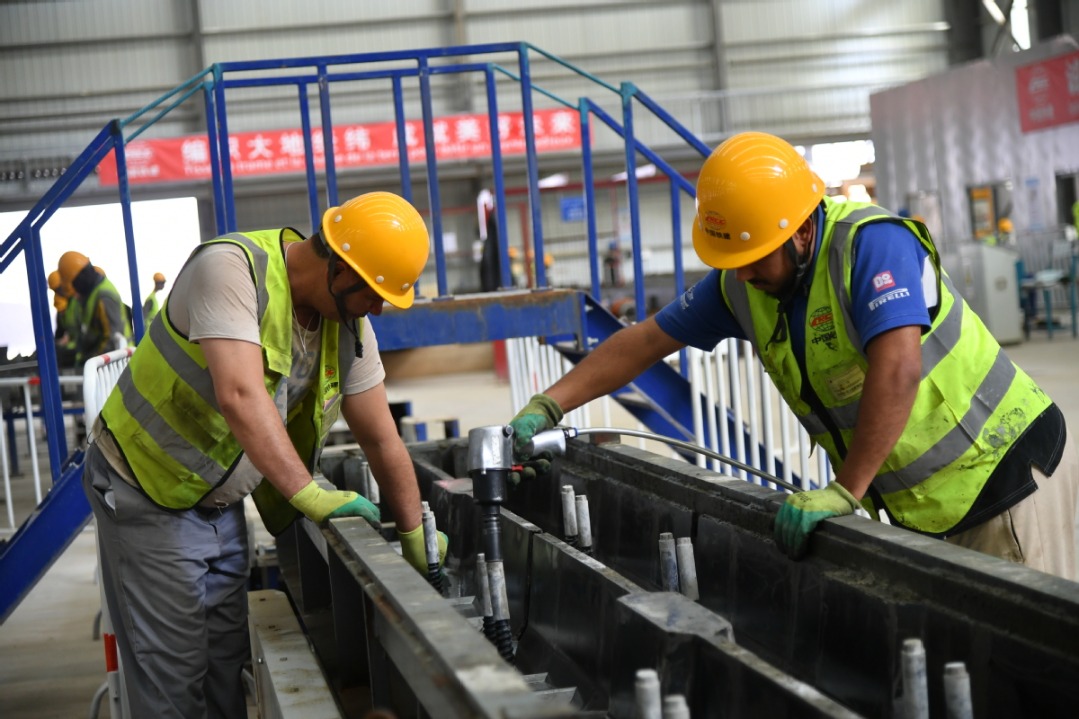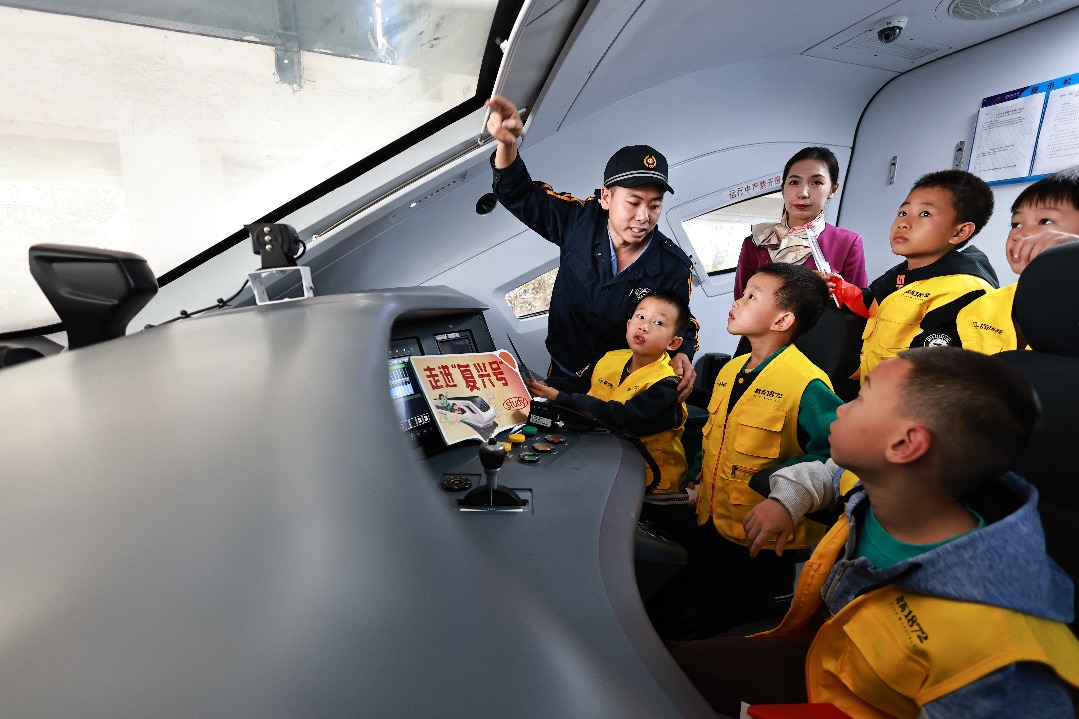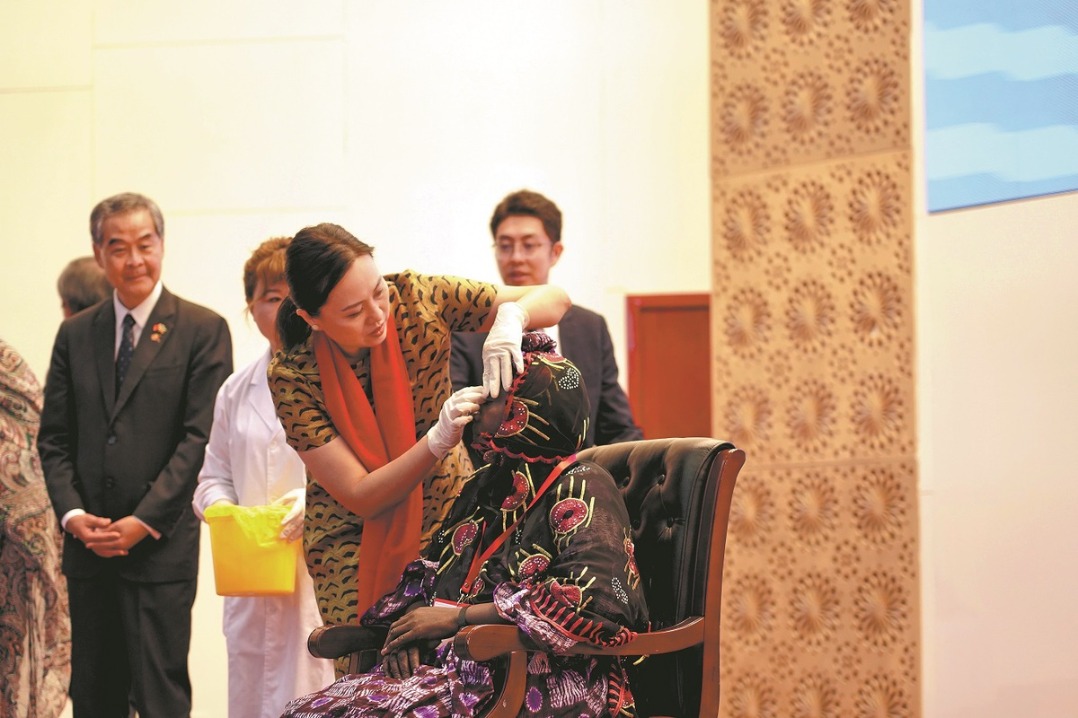Young generation increasingly taking political reins


Having covered the two sessions since 2013, I've talked to many political advisers drawn from the ranks of retired officials, seasoned academics and accomplished economists.
Indeed, it was their decades of experience and expertise in policymaking and research that got them seats in the National Committee of the Chinese People's Political Consultative Conference, China's top political advisory body, to begin with. To me and many other Chinese, they are familiar faces, often appearing on TV, in newspapers and on social media.
This year, however, I am rethinking the role of political advisers. Based at the same hotel as last year, I was expecting to see not only old faces, many of whom have attended the two sessions many times, but also new ones who will make their debut at this key national annual political event.
But what has piqued my curiosity this year is that many of the new advisers are much younger, or more precisely, are part of my generation. So how will this younger generation of political advisers, who grew up and were educated at a time when reform and opening-up was the defining policy, see their new role differently?
Answers began to emerge when I struck up a conversation with Zhang Qiao, deputy mayor of Suzhou, Jiangsu province. The 41-year-old is one of the youngest political advisers in the Chinese Peasants and Workers Democratic Party group, and this is his first year as a CPPCC National Committee member.
Zhang completed his PhD in chemistry at the University of California, Riverside, in 2012. He told me that at that point, becoming a deputy mayor and a national political adviser was the last thing he would have expected. Yet during his career as a professor in Suzhou, he started to see a broader picture, and the city's rapid development inspired him to seek new possibilities.
"For the past few months, I've been keenly studying the role of national political adviser. I'm thrilled to bring a scientific background to the position and contribute to local development as a deputy mayor," he said.
His proposal this year, based on his research and experience gained in Suzhou, is about modernizing China's biomedical industry.
Zhang grew up in a rural family in Hunan province in the early 1980s, when reform and opening-up began. "I wouldn't have been able to study in the United States without China embracing modernization. All I want to do is to make the country a better place for future generations," he said.
I was further touched when later that day, I talked with Yang Song from Guizhou province, who is also a new CPPCC National Committee member. The 38-year-old is the Party secretary of Haiga village in Liupanshui city in Guizhou, and his proposal is about improving village life by encouraging agricultural mechanization.
Yang told me that he was among the few in his village to make it to university. Leaving the mountains behind, where he and fellow villagers had lived for generations, he was introduced to a world of prosperity and diversity. Determined to help his people live a better life, he resigned from the Liupanshui city government in 2020 and returned home. "My roots are in the village. I want to use what I learned in college and government to make life better for the villagers. Even a tiny improvement in their lives thrills me," he said.
As I was preparing for the two sessions a week ago, Li Yining, a pioneering economist renowned for his contributions to China's economic reform, passed away on Feb 27, aged 92.
A leading voice for market reform, Li served as a national political adviser for more than a decade. His passing was particularly mourned by those familiar with China's market-oriented reform agenda.
As I was reading articles about Li, one of his quotes resonated with me: "It falls on our generation to make scholarly contributions to China's reform agenda and the wider, ambitious modernization drive."
As the country moves forward on the Chinese path to modernization, the baton is being passed from senior advisers like Li, who steered China in the direction of reform, to younger advisers such as Zhang and Yang, who are expected to keep the momentum going by contributing fresh ideas and perspectives to policymaking.
As a journalist, I am excited to see history being made by the younger generation, my generation.
Contact the writer at [email protected]
- Panda-themed railway station to open soon in Chengdu
- Xi replies to friendly personages in Brazil
- China-built railway plant starts operating in Algeria
- Law governing preschool education in China introduced
- New spine surgery comes to Xizang
- Young explorers discover China's high-speed train technology in Chongqing





































